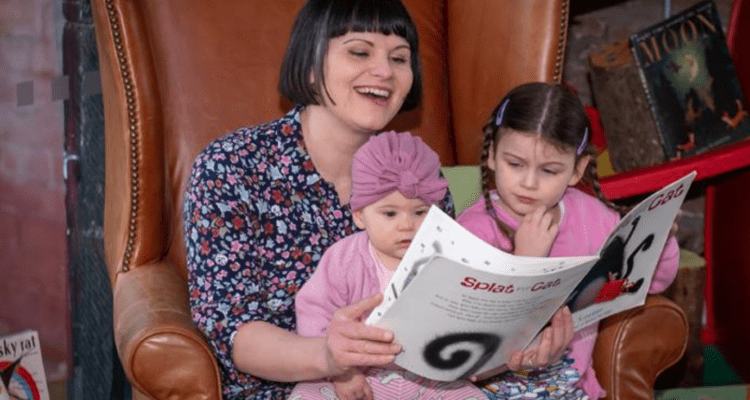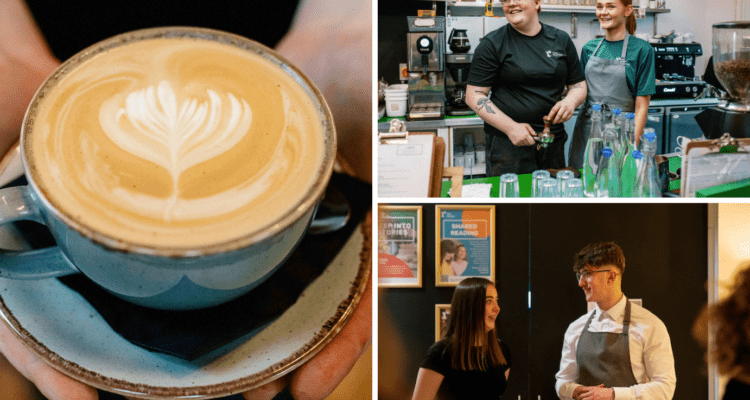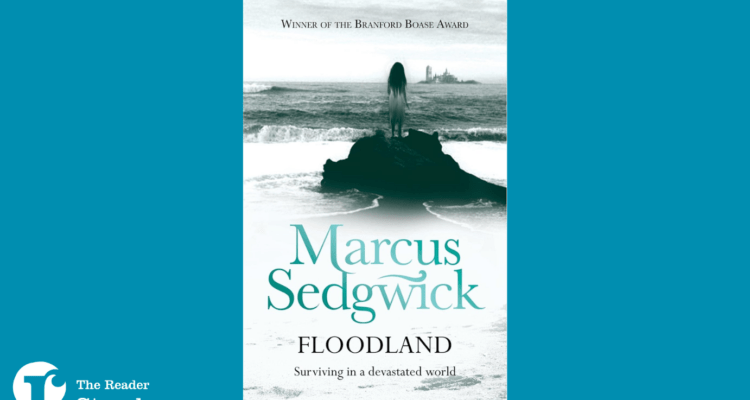The Reader Organisation in Inside Time: An inside view of shared reading
 The Reader Organisation's activity in Criminal Justice settings is expanding all the time, with regular shared reading groups being delivered in prisons, secure hospitals and offenders institutes throughout the UK each week providing opportunities to reform, rehabilitate and reduce reoffending through the reading of great literature in a safe environment. Not only does the use of shared reading in secure environments create a foundation for a collaborative approach to reducing criminal behaviour, it allows the space for offenders and ex-offenders to transform their attitudes, thinking and behaviour through a medium that has a direct personal impact as well as helping to contribute to stronger and safer societies in the long run.
The Reader Organisation's activity in Criminal Justice settings is expanding all the time, with regular shared reading groups being delivered in prisons, secure hospitals and offenders institutes throughout the UK each week providing opportunities to reform, rehabilitate and reduce reoffending through the reading of great literature in a safe environment. Not only does the use of shared reading in secure environments create a foundation for a collaborative approach to reducing criminal behaviour, it allows the space for offenders and ex-offenders to transform their attitudes, thinking and behaviour through a medium that has a direct personal impact as well as helping to contribute to stronger and safer societies in the long run.
Our work sharing reading within Criminal Justice settings is highlighted in Inside Time, the national monthly newspaper for prisoners in the UK. Inside Time creates a 'voice' for its readership - currently standing at an estimated 50,000 - providing articles and comments that seek to be informative, interesting and entertaining, and a key link to the outside world for its readers as well as connecting them with their family and friends. Amongst its contributions is cultural content including a regular poetry slot, which has produced 5 volumes of the Inside Poetry publication.
Each month in the paper, a member of TRO's Criminal Justice team provide an insight into a shared reading group session that has taken place through a poem or extract from a short story and a snapshot of the discussion that has accompanied the piece of literature. Always interesting and often revealing, the columns show how vital great literature is as a sounding board, connector between people, thoughts and emotions - and in many situations, as a lifeline.
Here on The Reader Online we'll be regularly featuring the TRO Inside Time articles on a monthly basis, bringing you our latest column hot off the press and giving you a closer view of shared reading in secure settings. To begin the feature, we're visiting a piece from the archives, originally published in September 2013. Wigan Project Worker Val Hannan takes us into a session at her group in Hindley YOI (funded by Greater Manchester West Mental Health NHS Foundation Trust), where the group shared the poem Making a Fist by Naomi Shihab Nye.
We forget that we are all dead men conversing with dead men.
—Jorge Luis Borges
For the first time, on the road north of Tampico,
I felt the life sliding out of me,
a drum in the desert, harder and harder to hear.
I was seven, I lay in the car
watching palm trees swirl a sickening pattern past the glass.
My stomach was a melon split wide inside my skin.“How do you know if you are going to die?”
I begged my mother.
We had been traveling for days.
With strange confidence she answered,
“When you can no longer make a fist.”Years later I smile to think of that journey,
the borders we must cross separately,
stamped with our unanswerable woes.
I who did not die, who am still living,
still lying in the backseat behind all my questions,
clenching and opening one small hand.- Reprinted from Tender Spot: Selected Poems (Bloodaxe Books, 2008) by Naomi Shihab Nye, with kind permission of the poet
After I’ve read, the group take turns reading a stanza each. We begin with the epigraph: ‘We forget that we are all dead men conversing with dead men.’
‘It’s strange,’ says C, ‘intriguing’.
‘It’s basically saying that everyone’s going to die’ says T.
C continues: ‘Some of us are alive but some of us are dead and we’re all going down the same path – we’re alive but we’re all dying.’
Suddenly F repeats the last stanza: ‘‘I who did not die, who am still living…/clenching and opening one small hand’ – This is me. It’s about me. It’s how I feel. I look at my hand – I always do that.’ F holds his fist up. ‘What’s that on my hand? Have I got blood on my hand? These thoughts are always at the back of my head.’
Lady Macbeth’s anguish is vivid in my mind.
‘It wasn’t premeditated,” offers T, seeking to comfort. Others nod, faces showing sympathy.
F says he is fine; he wants to continue.
We look at the first stanza.
‘What could the drum be?’ I ask.
‘It’s his pulse or heart beat getting slower,’ says T.
‘The narrator is only seven at this point – what about that?’
‘He’s getting scared and getting further away from home – going somewhere he doesn’t know,’ says C.
‘It could be about fate,’ says T. ‘He’s leaving his soul or one life behind.’
I ask about the image used to describe how the person felt: ‘My stomach was a melon split wide inside my skin.’
‘When I first came down to jail, I felt like that,’ says M. ‘My stomach had gone, I was only 12.’
I ask about the lines: ‘When you can no longer make a fist’?
‘This is when you can’t move, when you don’t have any strength.’
‘It makes me think of when you’re in your cell,’ says, C, ‘and you want to get out and you pound the bed and walls in anger and you can’t do anything and then you just get really weak and end up crying with the anger.’
They all agree with this and talk about how they often feel there is no release for their pent-up anger and frustration.
I ask about the image of the journey and why the ‘backseat’?
‘It could be the journey of life,’ says T.
‘It’s life as a car journey,’ says M.
‘But why the backseat?’
‘The back is in the past. The front seat is moving forward but you’re in the back seat of life when you don’t know what’s going to happen,’ says C.
‘What about borders – what could they be?’
‘It could be death – the border between life and death,’ says T.
‘Past and future,’ says M. ‘Childhood to being an adult.’
We focus on the final image: ‘clenching and opening one small hand.’
‘It’s your pulse, a heartbeat,’ says M.
‘It’s like stress,’ says F, ‘when you have to keep opening and closing your hand. I do it all the time.’
We discuss how our thoughts control the way we feel and conclude the worst prison is not a physical one, but the one we make for ourselves in our own mind.
You can find Inside Time on the web here: http://www.insidetime.org/index
Find out more about The Reader Organisation's work in Criminal Justice settings, alongside Reader Stories from readers in various secure settings, on our website: http://www.thereader.org.uk/what-we-do-and-why/criminal-justice
Share
Related Articles

Reader Revisited: Reading with Looked-After Children by Grace Frame
We're taking a trip down memory lane and revisiting articles from The Reader Magazine. This article first appeared in issue…

We’re Hiring! Join our Front of House Team
We're hosting a Recruitment Day at the Mansion House, Calderstones Park on Tuesday 16 April as we look to expand…

The Storybarn Selects… From The Reader Bookshelf
Our last deep dive into the 2023/24 Children and Young People's Reader Bookshelf is a review of Floodland by Marcus Sedgwick…


